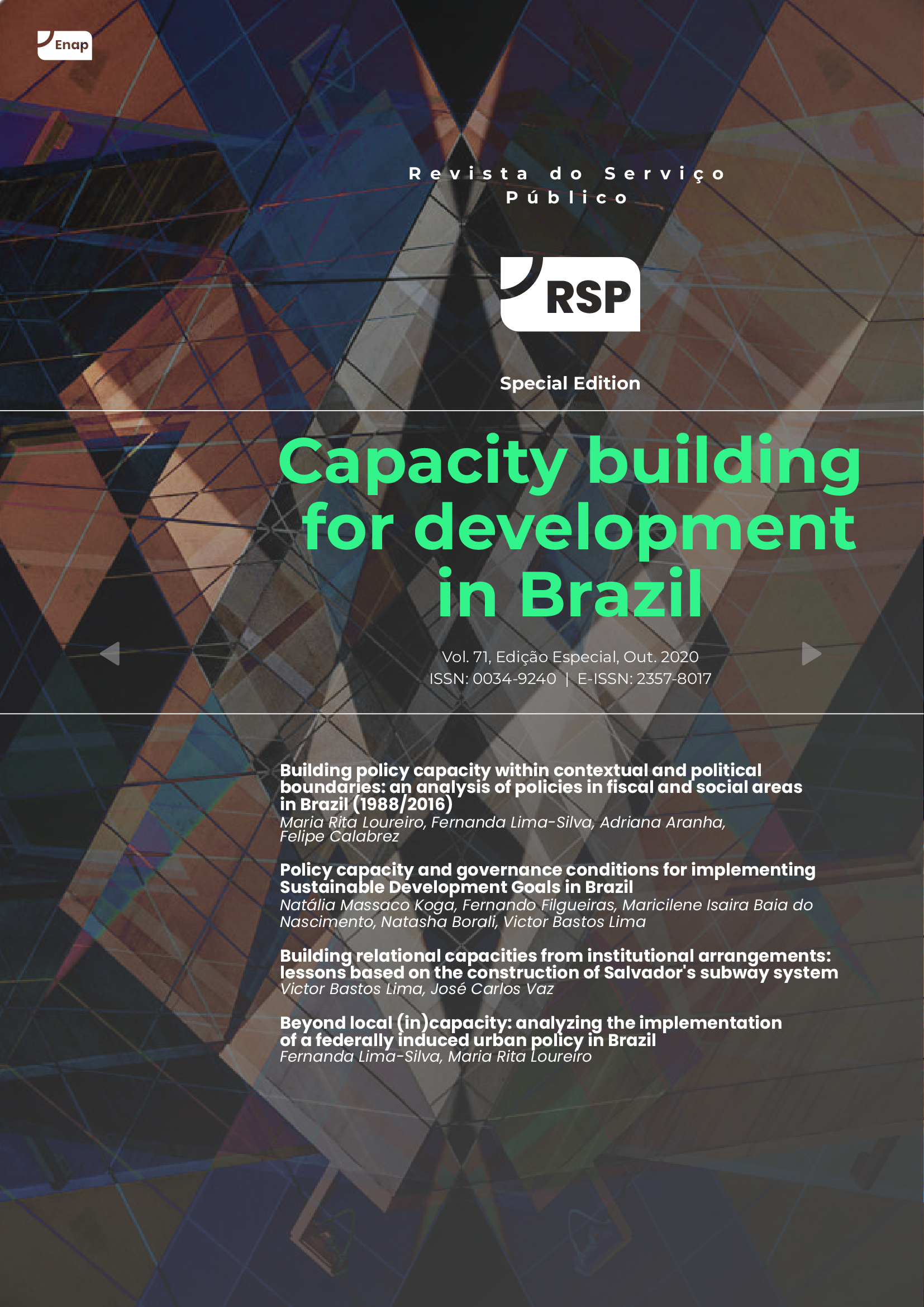Beyond local (in)capacity: analyzing the implementation of a federally induced urban policy in Brazil
DOI:
https://doi.org/10.21874/rsp.v71ib.4084Palabras clave:
policy capacity, slum upgrading, BrazilResumen
The article analyzes the capacity production of a Brazilian urban policy (Program of Acceleration of Growth - Slum Upgrading, PAC-UAP), whose implementation flaws are commonly associated with municipal governments shortcomings, even though its interventions involve a multiplicity of actors. Three analytical and empirical aspects are considered: (i) the need to expand knowledge on state capacity in policies implemented by a network of actors; (ii) the relevance of the debate of policy capacity, which refers to the ability of reaching the expected results in a specific public policy; (iii) and the demand to explore federally induced public policies in federations marked by heterogeneous subnational entities. Methodologically, the work develops a case study, complemented by documental analysis and interviews with key stakeholders. The research corroborates studies that emphasize that municipal problems affected the production capacity of PAC-UAP, particularly the lack of adequate human and financial resources. On the other hand, this study innovates when considering that the municipality is, in fact, the node of a network of actors, whose (in)capacity also affects the implementation. Therefore, it might not be possible to attribute only to the municipality the (in)success of this program. The article also reinforces the importance of incorporating organizational and systemic dimensions as explanatory elements, whose challenges can be potentiated when a program design is not adequate to the intrinsic characteristics of a certain public policy.
Descargas
Descargas
Publicado
Cómo citar
Número
Sección
Licencia
Derechos de autor 2020 Revista do Serviço Público

Esta obra está bajo una licencia internacional Creative Commons Atribución-NoComercial-CompartirIgual 4.0.
- A RSP adota a licença Creative Commons (CC) do tipo Atribuição – Uso Não-Comercial (BY-NC).
- A licença permite que outros remixem, adaptem e criem obra licenciada, sendo proibido o uso com fins comerciais.
- As novas obras devem fazer referência ao autor nos créditos e não podem ser usadas com fins comerciais, porém não precisam ser licenciadas sob os mesmos termos dessa licença.
- Ao publicar o artigo na RSP, o autor cede e transfere para a ENAP os direitos autorais patrimoniais referentes ao artigo.
- O artigo publicado na RSP não poderá ser divulgado em outro meio sem a devida referência à publicação de origem.
- O autor que tiver o artigo publicado na RSP deverá assinar o Termo de Concessão de Direitos Autorais (em momento oportuno a editoria da Revista entrará em contato com o autor para assinatura do Termo).



